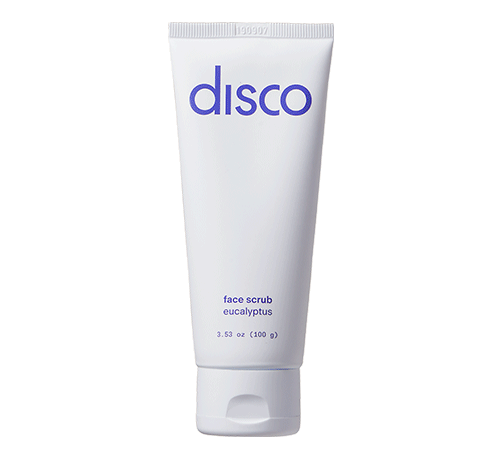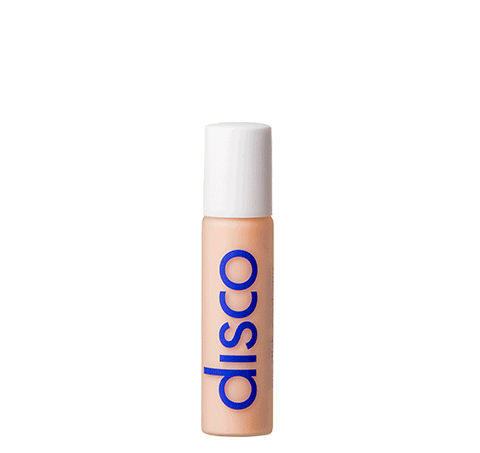Taking care of your skin is essential, and no step in your skin care routine may be as important as wearing sunscreen. If you have deeply melanated skin, however, sunscreen can be your worst nightmare.
You know your skin can still burn, but since you rarely do, you decide to skip out on the pasty white suncare products that never blend in and always leave your face with a sickly, chalk-like tint.
Unfortunately, not wearing sunscreen damages your skin, even if it’s dark. Let’s talk about the importance of sunscreen, how the sun damages darker skin tones, and which sunscreens are the best for dark complexions.
What is Sunscreen?
Sunscreen protects your skin from damaging sun rays. The sun produces three different types of rays: UVA, UVB, and UVC. They differ in their wavelengths and their ability to reach the surface of the earth.
Only UVA and UVB rays can reach Earth’s surface. UVC rays are absorbed into the atmosphere. UVA rays are more damaging to the skin than UVB rays. However, UVB rays still cause your skin to prematurely age and can cause discoloration and hyperpigmentation.
Sunscreen works by blocking your skin from absorbing these harmful rays, decreasing your risk of developing skin damage and serious health conditions. There are two different types of sunscreen protection.
Chemical Sunscreen
Chemical sunscreen works by using a chemical that transforms UV rays absorbed by the sunscreen into harmless heat waves released by the skin.
Chemical sunscreens are typically able to filter either UVA or UVB rays, not both. This means if you buy a chemical sunscreen, you’ll need to make sure it contains more chemicals than just one.
For instance, avobenzone is the most popular chemical found in chemical sunscreens. It works by chemically reacting to UVA rays, but not UVB rays. This means you’ll need another chemical in your sunscreen for UVB rays, like octisalate.
Unfortunately, some of these chemicals aren’t good for your skin. In fact, octisalate actually makes your skin better able to absorb anything else that might be hiding out in your sunscreen, like unspecified fragrances or other toxins.
That might not sound like a big deal, but considering octisalate (and other chemical sunscreen ingredients) have shown up in blood samples taken weeks after the sunscreen was worn, it might make you think twice before slapping it on your skin.
Physical Sunscreen
Physical sunscreen works by blocking and deflecting UV rays before they can penetrate your skin. Physical sunscreens are also known as mineral sunscreens. The two most popular mineral sunscreens are zinc oxide and titanium dioxide.
Physical sunscreens are generally less irritating to your skin. If you suffer from breakouts and feel like everything you use on your skin causes a flare-up, physical sunscreens will be a better match for you.
Physical sunscreen also works against both UVA and UVB rays, so you’ll only need one mineral to provide you with complete protection.
How SPF Works
You usually pick up a bottle of SPF 30 whenever you need sunscreen, but do you know what “SPF 30 means?
SPF stands for sun protection factor, and the number indicates how long it will take your skin to burn when the sunscreen is used as directed compared to the time it would take your skin to burn without sunscreen.
For instance, if your skin typically takes ten minutes to burn in the sun, a sunscreen with an SPF of 30 would protect your skin 30 times as long, meaning it should give you sun protection for 300 minutes.
There are caveats, of course. You must apply the correct amount of sunscreen to your skin (usually a shot glass full) to your body and reapply it when you are exposed to water or sweat. It also should be reapplied as directed on the bottle.
When Do You Need to Use Sunscreen?
The Skin Cancer Foundation recommends you wear sunscreen every single day. Literally every day -- even if you work outside, even if you’re at home, even if you’re in your car.
The fact is, even though our bodies need sun exposure to make vitamin D, no amount of sun exposure is safe for your skin, even if your skin is a deep tone.
Sunscreen of at least SPF 15 should be worn daily, with a higher SPF and reapplication if you plan to be outside. Still not convinced sunscreen is for you? Let’s take a look at the benefits of wearing it daily.
Benefits of Wearing Sunscreen
Whether you hate the smell of it or detest that white film, wearing sunscreen isn’t even on your radar, but it should be. Wearing daily sunscreen decreases your chance of developing skin cancers and also helps keep your skin looking youthful.
Sunscreen Keeps Your Skin Youthful
Nothing ages your skin more than the sun, although cigarette smoking is a close second. The sun’s rays decrease your collagen, destroy your elastin, and leave your skin looking older than you actually are. The aging effects of sun exposure are known as photodamage.
Photodamage has a long list of “symptoms,” but the most noticeable are:
- Sunspots (also known as age spots)
- Freckles
- Fine lines and deep wrinkles
- Skin sagging/loss of elasticity
- Rough patches of skin or areas that are flaky, bumpy, or otherwise irritated
There’s no way around it; photodamage isn’t a good look, and it happens across the board to all skin types and all skin colors. While fair skin is more susceptible to photodamage, darker skin tones are still at high risk, especially if you’re always under the sun, unprotected.
Sunscreen Helps Keep Your Skin Tone Even
If you step out in the sun without protection, your skin tone is going to look uneven. Cheekbones, foreheads, and noses will develop more melanin and look darker, while other areas remain lighter -- giving you an uneven skin tone.
Wearing sunscreen regularly can keep your skin from developing an uneven skin tone and keep your skin tone healthy.
Helps Prevent Idiopathic Guttate Hypomelanosis (IGH)
That’s a lot of syllables to describe the white spots that sometimes develop on your skin when you are exposed to the sun without protection.
If you’ve noticed tiny, flat, white spots have formed on areas of your body (most commonly your hands, feet, legs, and arms), you’ve probably developed IGH.
When you’re younger, these spots may disappear and only appear when you are in the sun. As you get older, they become permanent.
Darker skin tones are more susceptible to the development of IGH, and it goes without saying white spots are going to look more noticeable the darker your skin tone.
Effects of the Sun on Dark Skin
Dark skin naturally has more sun protection than fair skin. It has a natural SPF of 13, but if that makes you feel like you’ll never develop skin damage, it’s a false sense of security.
In fact, it can leave you more susceptible to getting sunburned if you aren’t motivated to protect your skin since it’s darker.
Dark skin is also more likely to develop IGH. Because IGH is usually most common in your 40’s, you may not consider it a factor. However, the sun exposure you get when you're younger has a major impact on your skin as you age.
You have to wear sunscreen, man. But the fact remains a lot of it leaves you looking ghostly.
grBut relax, at Disco, we’ve got you covered.
Best Sunscreens for Dark Skin
You know you need it, but it’s not a good look. There’s gotta be a better solution for keeping dark skin protected, and there is.
You’ll probably want to avoid chemical sunscreens. Unfortunately, physical sunscreens can be synonymous with white residue that seems to never absorb into your skin completely.
Mineral sunscreens often have a reflective quality that can cause the skin to look lighter than it actually is. Even if it doesn’t leave a tint, it can reflect light and cause the skin to look shiny.
So, what’s the solution? Better ingredients. Here are the top 3 ingredients in sunscreen that work best on dark skin.
1. Zinc Oxide
Mineral options work best for all skin types, and zinc oxide is the safest ingredient to keep you protected. Unlike zinc oxide, titanium dioxide creates free radicals, which can damage your skin and cause premature aging (non-sun related).
Zinc oxide also has a broader spectrum than titanium dioxide, which means it helps better protect you from both UVA and UVB rays. Lastly, titanium dioxide contains titanium, a metal that doesn’t offer any health benefit to our body. Zinc, however, is an important mineral our body needs to carry out specific processes.
Zinc is also easier to blend in, and if formulated correctly, like in Disco’s Moisturizing Mineral Sunblock, you’ll never know it’s on your skin.
2. Tripeptide
If you’re old enough to read this, you’re old enough to have had sun damage on your skin. As you get older, 30’s and 40’s, your skin begins to show signs of sun damage.
Tripeptide is an amino acid peptide (a molecule that helps build proteins in your body) that dives deep into your skin to help encourage collagen production.
Tripeptide helps rebuild the dermal structure, stimulating collagen production and helping fade the appearance of fine lines and wrinkles. Not only that, it helps strengthen the collagen already existing in your skin, making it sturdier and revitalizing it, so your skin looks and feels more youthful.
3. Wakame Extract
Wakame extract is a naturally derived seaweed ingredient that helps fight skin discoloration. This is especially helpful for dudes with darker skin because it helps fight uneven skin tone you can develop with sun exposure.
Wakame is all natural, plant-based, and safe for any skin tone.
Let’s Disco
You already trust Disco with your skin care routine, now you can trust us for your sun protection. Dark skin tones can get the protection they need, without the white film they don’t, with Disco’s mineral sunblock.
We offer an entire line of skin care specially formulated for the pH balance of a man’s skin. With Disco, you can care for your skin easily and naturally.
Sources:
Sun Safety | John Hopkins Medicine







